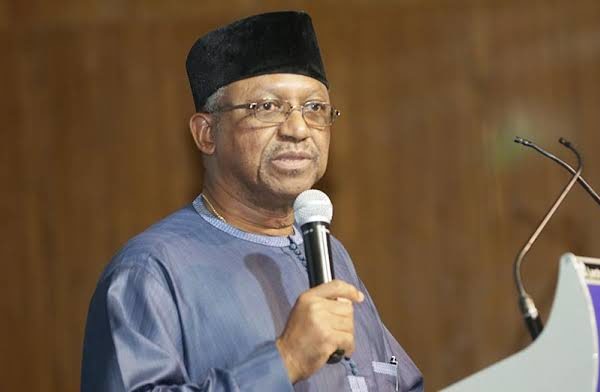The Federal Government has inaugurated four adolescent health and development policies from 2021 to 2025.
The Minister of Health, Dr. Osagie Ehanire, said this at the opening of the 1st African and 2nd Nigeria conference on adolescent health and development on Thursday, in Abuja.
The minister said the policy was to ensure that the nation’s health system was adequately responsive to adolescent and young people’s health.
Ehanire, represented by Dr. Salma Anas-kolo, Director of Family Health in the ministry, said that the policy would ensure that it delivers quality and gender-sensitive.
He said the theme, “Fulfilling Promise, Optimising Investment in Adolescent Health and Wellbeing in Africa” would ensure proper investment in the health and wellbeing of adolescents and young people.
Ehanire said the country had reviewed the National Policy on Adolescent Development and Health and translated it into an implementation plan and monitoring and evaluation framework.
“The four policies are National Adolescent Health and Development
Policy 2021 to 2025, National Adolescent and Young People’s Health and
Development Implementation Plan 2021 to 2025.
“Others are National Adolescent and Young People’s Health and
Development Monitoring and Evaluation Framework 2021 to 2025.”
Ehanire said the policy would ensure equipment health services that
effectively meet the preventive, curative, and rehabilitative health needs of young people.
According to him, the implementation plan has 12 thematic areas which
address the key priority focus in the policy.
He said the focus for interventions and programmes are mental health, violence and injury, sexual and reproductive health and rights, nutrition and physical activity, non-communicable diseases, disabilities, communicable diseases, oral health, and system
performance, among others.
The minister said the policy would centre around improving the health of adolescents and young persons.
According to him, the conference is a unique opportunity for stakeholders working in the adolescent space, policymakers, and young people to appraise progress made with fulfilling promises related to adolescents and young people.
He said the present administration believed that investment in the health of youths was key to achieve the Sustainable Development Goals (SDG) and demographic dividends.
A young adolescent, Isabel Anani, said the adolescent stage was characterized by dynamic brain development, in which interaction with the social environment shapes the capabilities they take forward into adulthood.
According to the 13 years old girl, it is during adolescence, a child acquires the physical, cognitive, emotional, social, and economic resources that are the foundation for later life, health, and wellbeing.
Anani said that Africa had the problem of limited resources and technical capabilities compared to counterparts in other continents like Europe, America, and even Asia.
“An average adolescent in Africa is more vulnerable due to unprecedented forces like poverty, illnesses, malnutrition, poor health care, insecurity, and illiteracy to mention but a few.”
Anani called on the government to establish a system for the training, mentoring, and participation of youth health advocates with the potential to transform traditional models of health care delivery and create an adolescent responsive health system.
Dr. Haliru Yahaya, Emir of Shonga, Kwara State, promised that the community would help the country achieves its adolescent goals.
Yahaya said the youths were the active group in any country and also very vulnerable to a lot of things.
According to him, he will ensure that adolescent issues will be treated from both cultural and traditional points.
States gave the adolescent health scorecards.
The highlight of the conferences was the award given of first, second, and third place that designed the logo.

